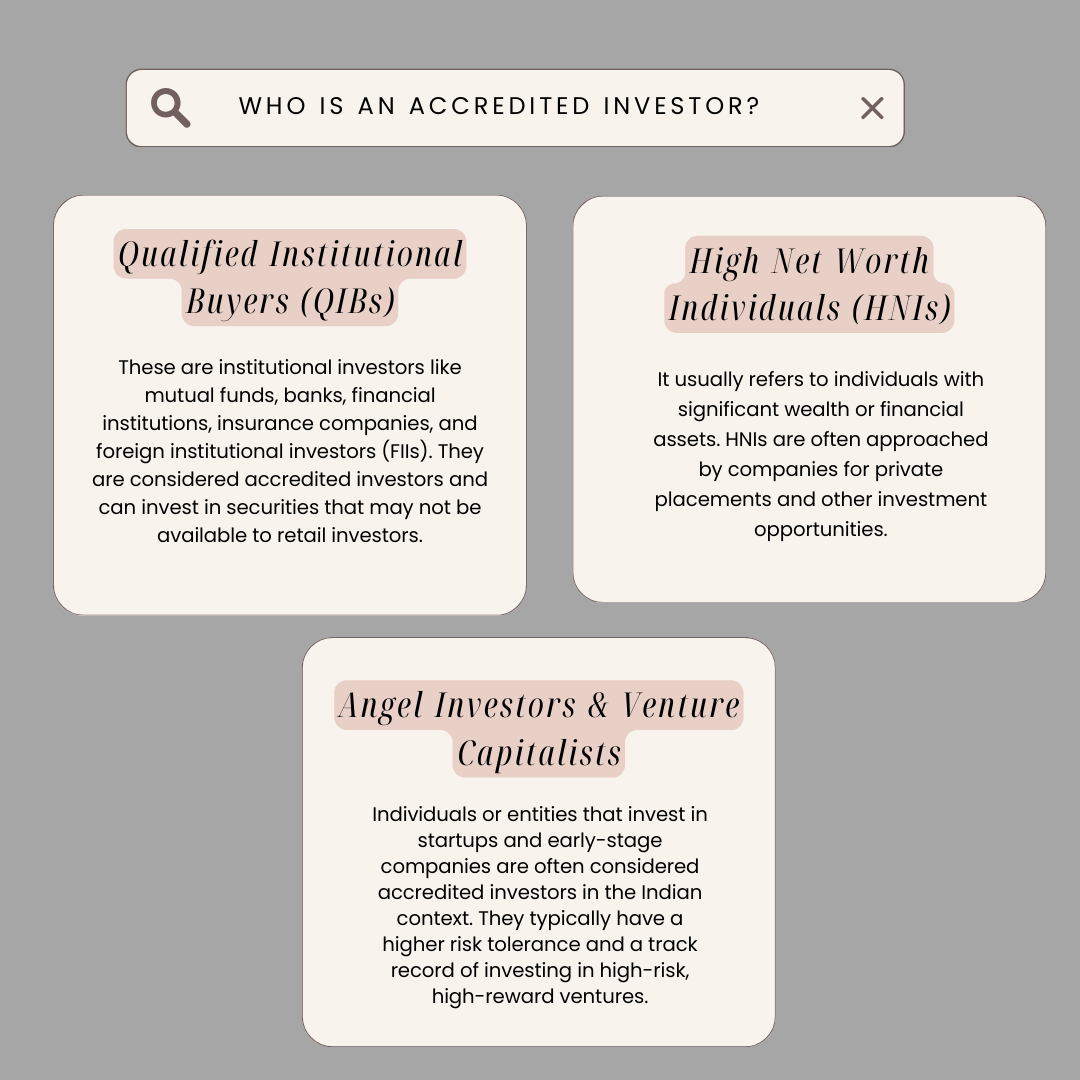All Categories
Featured
Table of Contents
As recognized capitalists, people or entities may participate in private investments that are not registered with the SEC. These investors are presumed to have the monetary refinement and experience required to examine and invest in risky financial investment possibilities unattainable to non-accredited retail investors. Right here are a couple of to consider. In April 2023, Congressman Mike Flooding presented H (hedge funds for accredited investors).R
In the meantime, investors have to abide by the term's existing interpretation. Although there is no official process or government accreditation to come to be a recognized financier, an individual may self-certify as an approved financier under present policies if they gained greater than $200,000 (or $300,000 with a partner) in each of the past two years and expect the exact same for the present year.
People with an active Series 7, 65, or 82 certificate are also thought about to be recognized financiers. Entities such as firms, partnerships, and depends on can likewise accomplish recognized financier condition if their investments are valued at over $5 million. As recognized capitalists, individuals or entities might take part in exclusive investments that are not signed up with the SEC.
Private Equity (PE) funds have actually shown amazing growth in current years, seemingly undeterred by macroeconomic obstacles. PE companies pool resources from accredited and institutional investors to acquire regulating passions in fully grown private business.
Along with funding, angel investors bring their expert networks, advice, and knowledge to the startups they back, with the expectation of venture capital-like returns if business takes off. According to the Center for Venture Study, the ordinary angel financial investment quantity in 2022 was approximately $350,000, with financiers receiving a typical equity stake of over 9%.
Comprehensive Accredited Crowdfunding Near Me
That stated, the development of online personal debt systems and specific niche sponsors has actually made the asset course easily accessible to private recognized financiers. Today, capitalists with as low as $500 to invest can make the most of asset-based private debt opportunities, which supply IRRs of up to 12%. In spite of the surge of shopping, physical grocery store stores still make up over 80% of grocery sales in the USA, making themand especially the property they run out oflucrative investments for certified financiers.
In contrast, unanchored strip centers and area centers, the next two most heavily transacted sorts of real estate, recorded $2.6 billion and $1.7 billion in purchases, specifically, over the exact same duration. What are grocery store-anchored? Suv strip shopping malls, electrical outlet shopping centers, and other retail facilities that include a significant food store as the area's main tenant generally fall under this classification, although malls with enclosed sidewalks do not.
Approved financiers can spend in these spaces by partnering with actual estate personal equity (REPE) funds. Minimum financial investments normally start at $50,000, while complete (levered) returns vary from 12% to 18%.
Professional Accredited Investor Funding Opportunities Near Me (Oakland)

The market for art is likewise increasing. By the end of the years, this number is anticipated to come close to $100 billion.
Financiers can now own varied exclusive art funds or acquisition art on a fractional basis. real estate crowdfunding accredited investors. These alternatives come with investment minimums of $10,000 and offer net annualized returns of over 12%.

Over the previous several years, the accredited capitalist meaning has been slammed on the basis that its sole emphasis on an asset/income test has unfairly left out all but the richest individuals from profitable financial investment chances. In reaction, the SEC began considering means to increase this meaning. After a considerable comment period, the SEC took on these amendments as a means both to capture people that have reputable, alternate signs of economic refinement and to improve certain obsolete sections of the meaning.
The SEC's key worry in its guideline of non listed securities offerings is the protection of those investors that do not have a sufficient degree of economic sophistication. This problem does not put on well-informed workers since, by the nature of their placement, they have adequate experience and access to economic details to make enlightened investment choices.
Dependable Growth Opportunities For Accredited Investors Near Me (Oakland)
The determining element is whether a non-executive worker in fact takes part in the personal investment firm's investments, which need to be figured out on a case-by-case basis. The addition of educated staff members to the accredited investor interpretation will certainly also permit even more workers to buy their employer without the personal investment firm risking its own condition as an accredited financier.
Prior to the amendments, some personal investment firm risked shedding their recognized investor standing if they enabled their employees to spend in the company's offerings. Under the changed definition, a better number of personal investment firm workers will certainly currently be eligible to spend. This not just develops an additional source of resources for the personal investment firm, however also additional lines up the interests of the worker with their employer.
Top High Yield Investments For Accredited Investors Near Me – Oakland
Currently, only people holding specific broker or financial advisor licenses ("Series 7, Collection 65, and Collection 82") certify under the interpretation, yet the changes approve the SEC the capacity to consist of extra certifications, designations, or credentials in the future. Certain types of entities have actually additionally been included in the meaning.
When the meaning was last upgraded in 1989, LLCs were reasonably rare and were not consisted of as an eligible entity. Under the changes, an LLC is considered a recognized investor when (i) it has at least $5,000,000 in assets and (ii) it has actually not been created entirely for the specific objective of obtaining the safety and securities used.

In a similar way, particular family members offices and their clients have actually been contributed to the interpretation. A "household workplace" is an entity that is established by a family to manage its properties and supply for its future. To ensure that these entities are covered by the interpretation, the modifications specify that a family workplace will certainly now qualify as an approved investor when it (i) takes care of at least $5,000,000 in possessions, (ii) has not been created especially for the objective of obtaining the offered safeties, and (iii) is guided by a person who has the financial class to assess the values and risks of the offering.
The SEC asked for remarks relating to whether the financial limits for the revenue and asset tests in the meaning ought to be changed. These limits have actually been in place considering that 1982 and have not been changed to account for rising cost of living or various other aspects that have actually altered in the interfering 38 years. Nonetheless, the SEC ultimately determined to leave the possession and revenue thresholds unmodified in the meantime.
Table of Contents
Latest Posts
Surplus Funds Excess Proceeds
Buying Tax Foreclosed Properties
Investing Tax Lien
More
Latest Posts
Surplus Funds Excess Proceeds
Buying Tax Foreclosed Properties
Investing Tax Lien